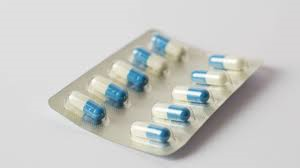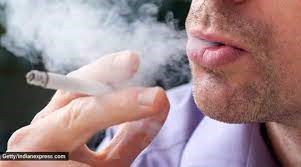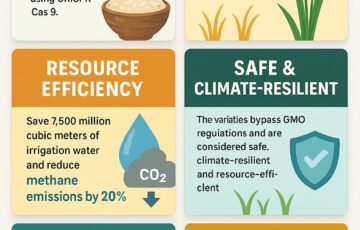Daily News Analysis.
Polypills : Combating Cardiovascular Diseases (GS- 3)
News: Polypills are now included in the Model Lists of Essential Medicines by the WHO, demonstrating their recognition of their value in the fight against cardiovascular illnesses.
A polypill is a single pill that combines a number of different medications. They are often used to treat or prevent a number of different medical diseases. By combining many medications in a single dosage form, it makes medication regimens easier to follow.
Simvastatin (for cholesterol control), ramipril (for blood pressure control), atenolol (for heart health), hydrochlorothiazide (for blood pressure control), and acetylsalicylic acid (aspirin for clot prevention) are all included in the “Polycap,” a polypill combining various drugs.
By combining several medications into a single dosage form, polypills are intended to streamline treatment regimens, improve medication adherence, and offer an efficient method of managing complicated health issues.
The Expert Committee on Selection and Use of Essential Medicines updates the WHO Model Lists of Essential Medicines every two years.
World Health Organization:
- WHO, established in 1948, is an organization of the United Nations that links countries, partners, and individuals to advance health, ensure global security, and assist the most vulnerable people so that everyone can enjoy the best possible level of health.
- WHO is in charge of advancing universal health care internationally. They organize and lead the global response to health emergencies. They also encourage leading healthier lives, from prenatal care through old age. With the help of science-based policies and initiatives, their Triple Billion targets set forth an ambitious strategy for the globe to achieve universally good health.
Palaeo Proxies (GS- 1)
News: The shortcomings of “palaeo proxies,” which were used to measure temperature before thermometers were invented.
It describes as factually dubious the assertions that a particular day was the warmest in more than 100,000 years. Paleo proxies, also known as paleoclimate proxies, are oblique pieces of information that scientists use to speculate about ancient climatic conditions.
Since thermometer measurements and other instrumental climate records are typically only available for a few hundred years at a time, scientists must rely on a variety of natural sources to recreate climatic conditions over longer durations.
Scientists also employ stable radioactive decaying isotopes to calculate past temperatures. The proxies can be used to better understand how contemporary people are reacting to climate change.
Such proxies, however, are inadequate for determining daily temperatures. Since it is better to understand climate change over longer timescales, making alarmist claims about daily records can undermine the validity of efforts to combat climate change.
India’s response to climate change:
The National Action Plan on Climate Change (NAPCC) describes current and planned policies and initiatives for mitigating and adapting to climate change. Through 2017, the Action Plan identifies eight key “national missions”: solar energy, improved energy efficiency, sustainable housing, water, maintaining the Himalayan ecosystem, green India, sustainable agriculture, and strategic knowledge for climate change. The majority of these missions have clear imperatives for adaptability.
Fund for National Clean Energy: In order to finance and promote clean energy initiatives as well as funding research in the field, the Government of India established the National Clean Energy Fund (NCEF) in 2010. A cess of INR 50 (later increased to INR 100 in 2014) per tonne of locally produced or imported coal is levied in order to fund the fund.
India has committed to three things as part of the Paris Agreement: By 2030, India’s GDP-related greenhouse gas emission intensity will be 33–55% lower than it was in 2005. Also, non-fossil fuels would account for 40% of India’s power capacity. By 2030, India will increase the amount of forest and tree cover, resulting in an additional “carbon sink” of 2.5 to 3 billion tonnes of CO2 equivalent.
International Solar Alliance (ISA): Mr. Ban Ki Moon, the former United Nations Secretary-General, and representatives from India and France inaugurated the ISA during the United Nations Climate Change Conference in Paris on November 30, 2015.
Emission Standards for the Bharat Stage (BS): The government at the time introduced the BS 2000 (Bharat Stage 1) vehicle emission rules beginning in April 2000, followed by BS-II in 2005, as vehicle emissions are one of the major causes of air pollution. In 2010, BS-III was made generally available. However, in 2016, the government made the decision to completely exclude BS V in order to adhere to international best practices and advance to BS-VI standards.
Tobacco Control : WHO Report (GS-3)
News: The deployment of MPOWER initiatives is one of the major advancements highlighted in the latest WHO report on tobacco reduction.
The World Health Organization (WHO) created MPOWER measures, which are tobacco control initiatives, in 2008. They consist of:
M = Track tobacco use
P = Prevent exposure to tobacco smoke
O=Offer support for quitting cigarettes
W=Caution against using tobacco
E=Apply restrictions on cigarette advertising
R = Increase tobacco product taxation
Principal points of the report:
- Reduced Smoking Worldwide Smoking prevalence decreased from 22.8% in the world in 2007 to 17% in 2021, a decrease of 300 million smokers.
- 71% of the world’s population, or more than 5 billion people, are safeguarded by at least one MPOWER measure.
- From 44 in 2008 to 151 in 2022, more countries are implementing at least one MPOWER initiative.
- Only four nations—Brazil, Turkey, the Netherlands, and Mauritius—have put all of the measures into effect.
- Warning WHO issues a strong warning against aggressively promoting e-cigarettes as a safer alternative, particularly for young people.
- Over 1 million non-smoker fatalities and a number of other health problems are linked to secondhand smoke exposure each year.
- India is a leader in tobacco dependence treatment and health warning labels, and it forbids the sale of e-cigarettes.
- Due to enforcement and communication efforts, there has been a 27% decrease in smoking in public locations in Bengaluru.
- Need for tougher enforcement, loose cigarette sales restrictions, higher fines, and warnings on OTT platforms; Advertising restrictions on cigarettes can reduce usage.
- Attempts to lessen secondhand smoke through smoke-free public spaces and education programm.
Ayush Visa : New Category Of Ayush (GS-2)
News: The development of a new category of Ayush visa for foreign nationals seeking treatment using Ayush or Indian medical systems was recently announced by the Ministry of Home Affairs.
For foreign citizens seeking traditional Indian medical care in India, the Ayush Visa was created expressly for them. This visa intends to serve people who are drawn to Ayurveda, yoga, and other conventional approaches to healing and wellbeing.
The country’s vision for the Heal in India initiative includes the development of the Ayush Visa category. It aims to give the entire world “integrated and holistic treatment” in India and improve patient mobility for access to top-notch, reasonably priced, and high-quality healthcare services.
The Department of Indian Systems of Medicine and Homoeopathy (ISM & H) was renamed as AYUSH in 2003, which stands for Ayurveda, Yoga, Unani, Naturopathy, Siddha, and Homoeopathy.
India’s Visa Policy:
- Visitors visiting India must apply for a visa unless they are citizens of a nation that does not require them. Others must get a visa at an Indian diplomatic mission, while citizens of other nations can receive a visa on arrival or an e-Visa online.
- The following two nationalities may enter India without a visa or passport and may stay as long as they like in India to live and work. However, they must not originate from or pass through Pakistan, Hong Kong, Macau, or the Chinese mainland before applying for immigration into India.
- Foreign nationals may live and work in India without any time restrictions if they have a valid Overseas Citizen of India card or a Persons of Indian Origin card. Foreign citizens who have an expired Persons of Indian Origin Card that expires after January 9th, 2015 may also enter India without a visa, according to Timatic. Bangladeshi and Pakistani nationals are exempt from this legislation because they are not permitted to hold an Indian Overseas Citizenship.
MASI Portal (GS-2)
News: The Rajya Sabha was told by the Minister for Women and Child Development on the MASI Portal.
For synchronized monitoring of the Child Care Institutions (CCIs) and their inspection processes across the nation, the Monitoring App for Seamless Inspection (MASI) was created.
This application was created by the National Commission for the Protection of Child Rights (NCPCR). The Juvenile Justice Act, 2015 (as revised in 2021) mechanism for CCI inspection is operating effectively and efficiently.
The monitoring portal, where the automated reports are generated, is connected to the app. This app permits coordinated inspections by members of juvenile justice boards (JJBs), state commissions for the protection of children’s rights (SCPCRs), district inspection committees, child welfare committees (CWCs), state inspection committees, and district inspection committees as specified by the JJ Act of 2015.
It acts as a centralized location for all CCI inspections conducted by the aforementioned entities. Prior to and following the end of the inspection cycle, regular follow-up is conducted. As soon as the authority fills out and submits the questionnaire, the entire reports are automatically created on the Portal.









